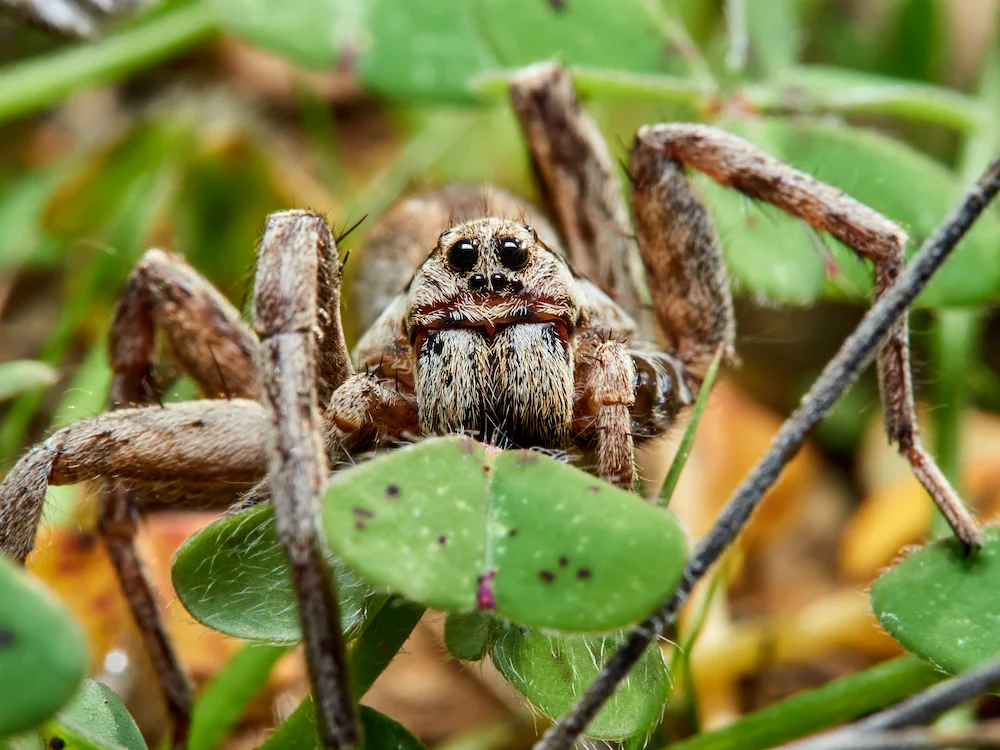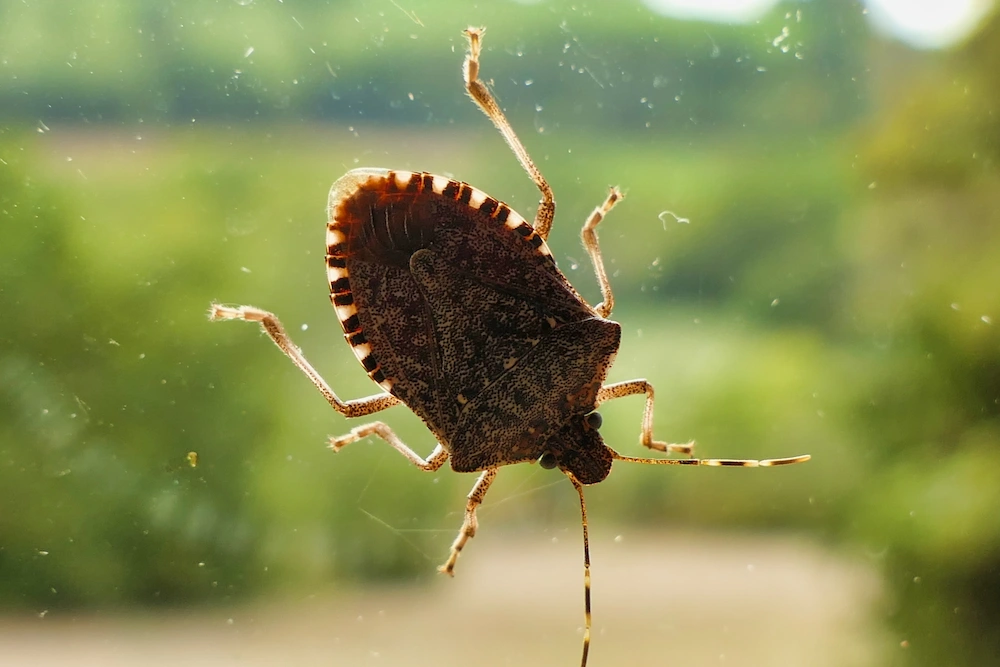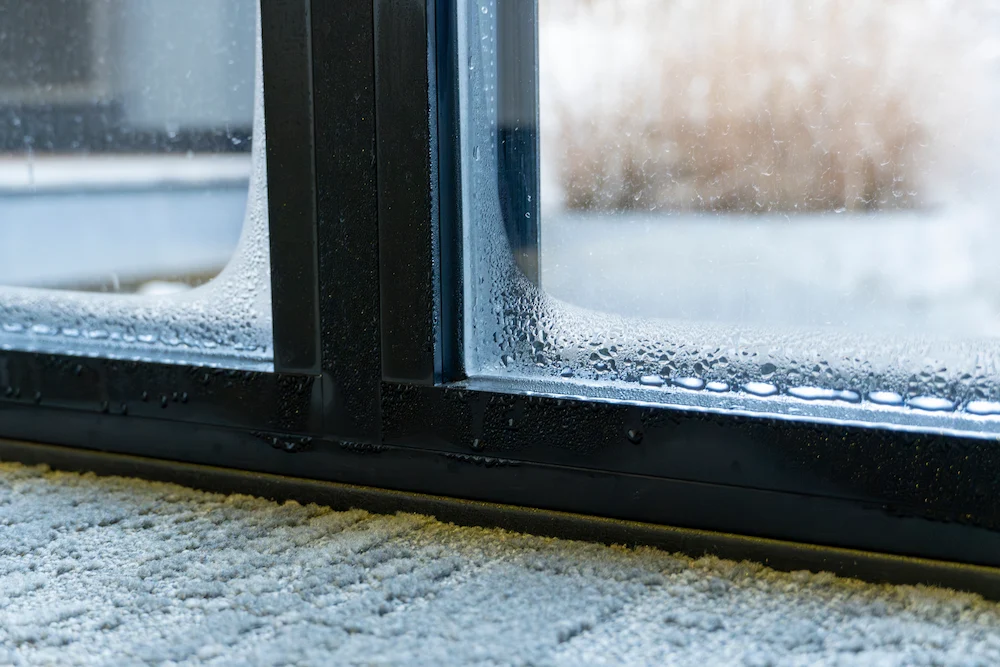Summary: Wolf spiders are certainly intimidating, especially with the rumor that their bite is dangerous. This blog determines if that’s true by examining the facts behind the wolf spider and its lifestyle before discussing its bite. It also gives tips on preventing spider bites to avoid the issue altogether. Pointe Pest Control eliminates spiders with efficiency.
Out of all the creepy-looking spiders in the Pacific Northwest — and there are a lot — wolf spiders might just be the creepiest of them all. In nature, the creatures that seem to be the scariest aren’t actually threatening. They just look frightening because that’s their only defense mechanism.
But can the same be said about wolf spiders? They’re rumored to have a venomous bite that matches their intimidating appearance. Let’s find out if this is true by looking into the lifestyle and habits of one of the furriest spiders in the PNW!
The Basics
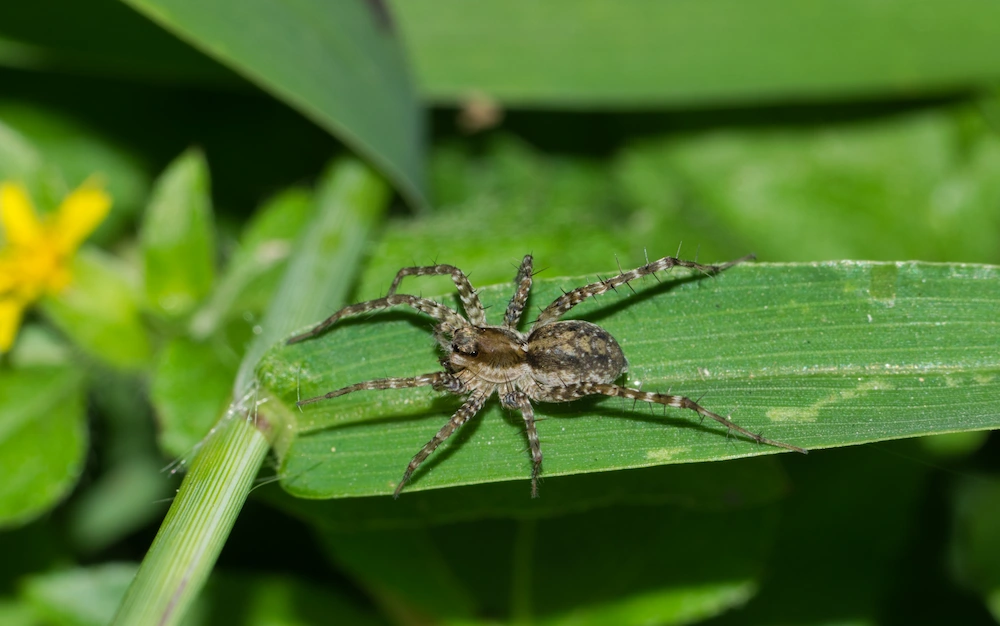
Before we examine anything, it’s a good idea to cover the basics, so we know what we’re working with here. Wolf spiders are found on every continent except Antarctica (for obvious reasons) and their family has over 24,000 species worldwide.
Wolf spiders are known for their physical features, which include:
- 8 eyes (2 large eyes on top, 2 medium eyes in the middle, and 4 small eyes on the bottom)
- Gray or dark brown coloring with dark markings
- An average length of 2 inches
- 2 tiny “legs” (pedilaps) on the head for grasping prey
- Short, furry hairs
Wolf spiders are formidable hunters that can climb and swim when required. They can even run up to 2 feet a second! When they’re not hunting, these arachnids prefer to hide in warm and humid areas. Wolf spiders are often found squatting in grass, leaf piles, sheds, garages, basements, and clutter.
Hunter Instincts
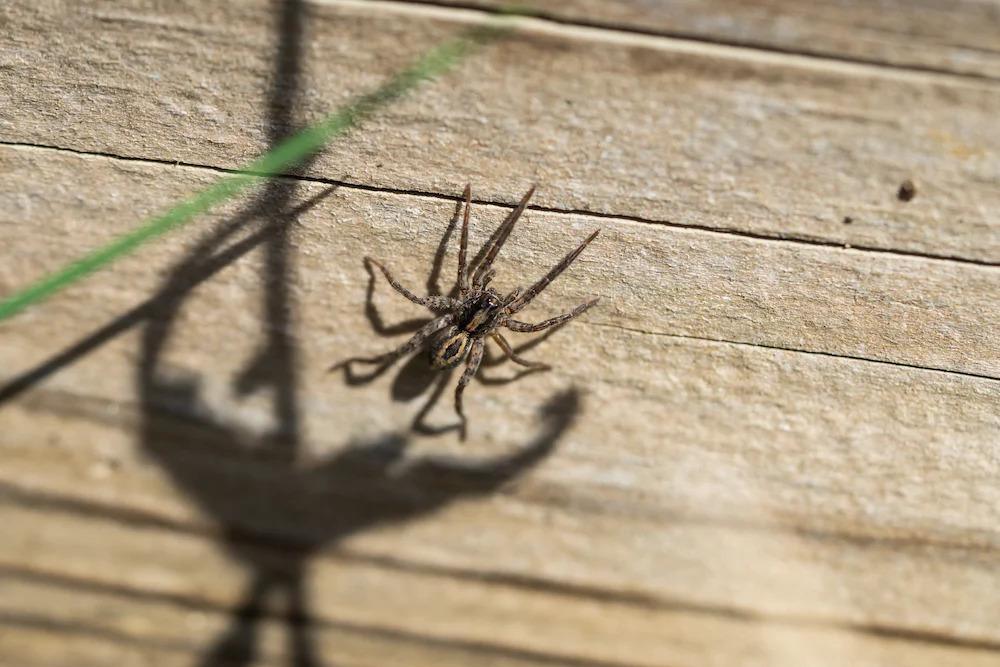
Wolf spiders got their name from their wolf-like hunting skills. Unlike wolves, wolf spiders hunt and live alone. They don’t form packs of spiders (imagine that nightmare), as each spider is responsible for feeding itself. It gets its prey by either hiding in its underground burrow and leaping out when the critter is close, or by running and pouncing on the unsuspecting critter.
Once the wolf spider has its prey, it uses its pedilaps to hold the meal in place while it delivers a venomous bite. This bite slowly kills the prey so the spider can enjoy its feast. They usually stick with various insects and spiders, but they’re also known to dine on frogs and lizards. Thanks to the wolf spider’s great eyesight, it has no trouble spotting its next prey.
A Mother’s Intuition
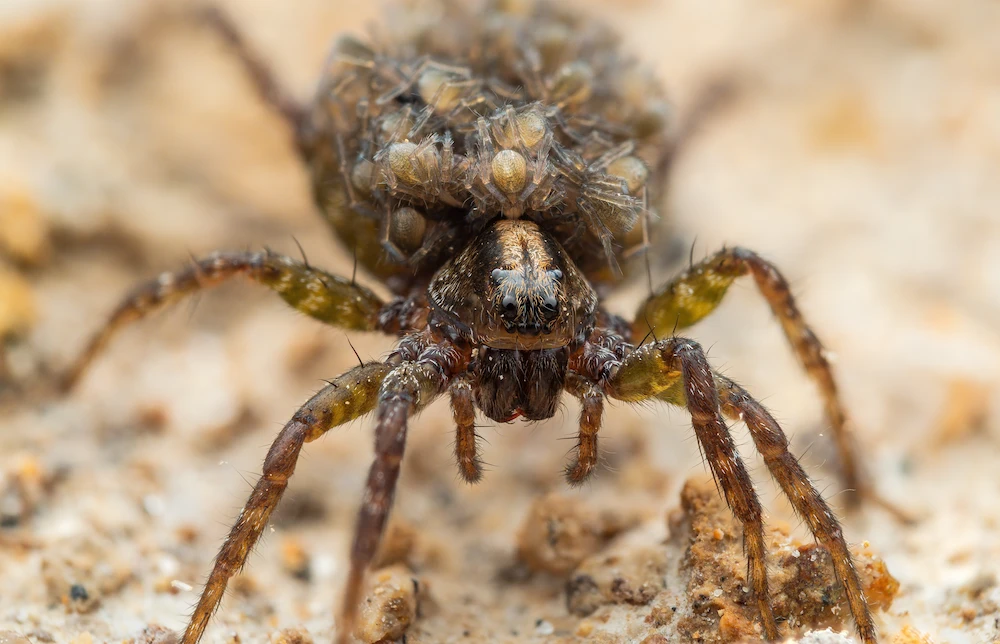
Besides its hairy body and its strong bite (don’t worry, we’re getting to that), wolf spiders are also known for their strange parenting habits. After mating, female wolf spiders create a clutch of 100 eggs encased in silk. They can also eat the male if they so choose, so praying mantises and black widows aren’t the only “man-eating” pests in town!
The strange habits start once the female has her egg clutch. She carries it around until the eggs hatch, then continues carrying those babies on her back until they’re independent. This usually lasts for a couple of weeks. If you find a wolf spider and see a lot of glowing eyes peering back at you, you’ve found yourself a spider family. Congrats!
Since wolf spiders prefer to stay hidden in isolated places, it’s not every day that these spiders are spotted by humans. They’re certainly around for long enough to be discovered. Males live for about a year (if they’re not eaten first), and females can live for several years.
Is Their Bite Dangerous?
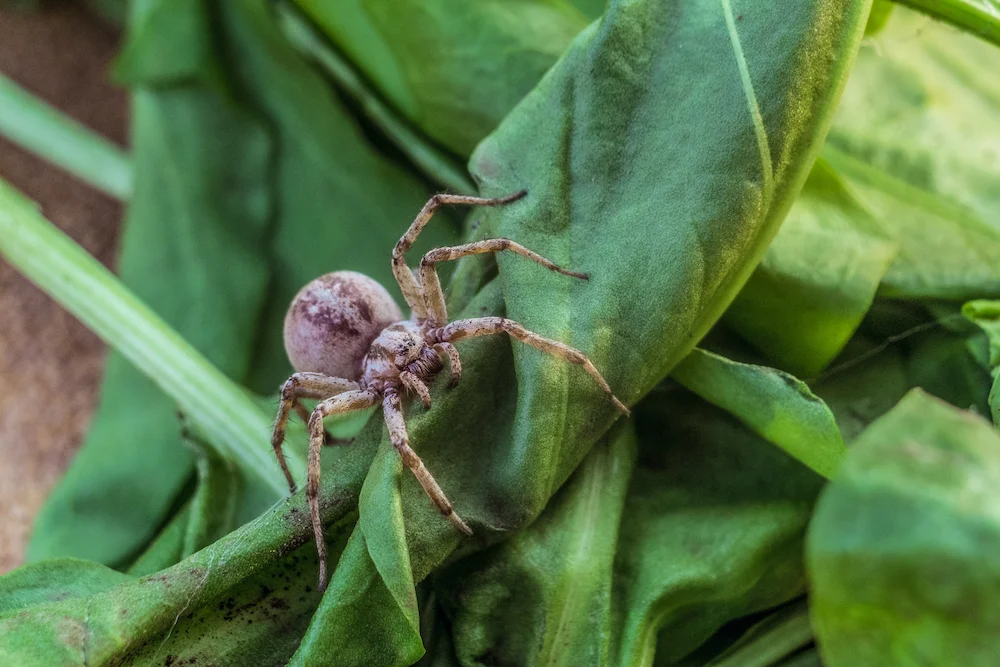
We’ve arrived at the titular question: are wolf spiders dangerous? The short answer is no, much to our relief. Black widow and brown recluse bites are more concerning across the board. But it’s not as cut and dry as we might think.
Wolf spiders only bite when they’re threatened or trapped. They’d rather run away from a threat than attack it, so a bite only occurs when they are directly threatened. When they do bite, their fangs puncture our skin. Generally, these bites just result in redness, swelling, itchiness, and pain on the site.
The good news is that wolf spider bites often heal on their own. We recommend cleaning the bite with soap and water right after it happens to prevent infection. Ice packs or cold compresses are also great for keeping the pain down. If your bite is not healing after a few days, please see your doctor as soon as possible.
The bad news is that it is possible to be allergic to wolf spider bites. You might not find this out until after you’re bitten, which isn’t ideal. Common symptoms include a hard bump, excessive swelling, difficulty breathing, dizziness, and a red line extending from the bite. If you have any of these symptoms after being bitten, seek immediate medical attention.
How to Prevent Wolf Spiders

It’s clear now that wolf spiders aren’t the most dangerous arachnids in our region. It’s best to avoid being bitten by one, but that’s true for any pest. This doesn’t mean we want wolf spiders roaming around our homes in search of smaller pests.
Our top tips for avoiding wolf spider bites (and general spider bites) are:
- Seal Entry Points — To keep spiders out of your home, you need to eliminate their entry points. Seal cracks in your house’s exterior and foundation with waterproof caulk. Replace window/door screens and weather stripping that are loose or cracked.
- Use Utility Gloves Outside — When you’re doing yard work (keeping the yard tidy also prevents spiders) or handling firewood, we recommend wearing utility gloves. These protect your hands from rough objects and from hidden spiders that aren’t happy to be uncovered.
- Remove Clutter — Spiders love hiding in cluttered boxes and papers, so keeping your stored items organized is an easy way to keep pests at bay. Use plastic lidded containers to hold your stored possessions and stack the containers in an orderly fashion.
- Organize Firewood — If you have an outdoor firewood pile, keeping it organized will do wonders for preventing pests. Stack the firewood in an orderly fashion at least 20 feet from the house (in case there are termites), and check each piece for spiders before you bring it in.
- Shake Out Your Clothing — Any clothing items that you keep in the garage or outside are at risk of hiding sneaky wolf spiders. Shoes, hats, and gloves are often invaded. Before you put any of these items on, give them a good shake to ensure there aren’t any.
- Solve Other Pest Problems — Wolf spiders are always in search of food, so removing their favorite meals is an easy way to prevent them. If you have another pest problem — especially insects or spiders — get it solved by pest professionals ASAP.
- Cover Your Skin — When you venture into wooded or overgrown areas, it’s a good idea to cover as much of your skin as possible. This makes it harder for wolf spiders and other pests (like ticks) to bite you. Wear closed-toe shoes and pants when you’re in these areas.
- Clean Their Hiding Spots — An easy way to make sure your home isn’t hiding wolf spiders is to keep it clean! Use your vacuum or broom to clean the floors regularly. Pay close attention to room corners and the spaces underneath furniture and other large items.
Keep the Spiders Away with Pointe!
Spiders are one of the most fear-inducing pests (arachnophobia is one of the most common phobias for a reason), but do you know who isn’t scared? Pointe Pest Control! Our licensed technicians tackle spider problems head-on by assessing the situation, targeting the species with the proper treatments, and preventing future invaders with exclusion work.
Spiders and insects are still very active because of the warm weather. The most efficient way to stay ahead of these invasive pests is by receiving regular services from the highly-trained professionals at Pointe. Contact us for a free quote on our productive services today!
Citations
Lupo, L.J. (2024, June 23). Wolf spider: Facts, appearance, behavior, and more. The Spruce. Available at https://www.thespruce.com/how-dangerous-is-wolf-spider-2656502 (Accessed on July 21, 2025).
What’s the deal with wolf spiders?. (n.d.). Insight Pest Solutions. Retrieved July 21, 2025, from https://insightpestnorthwest.com/whats-the-deal-with-wolf-spiders/
Wolf spider bite. (2024, June 11). Cleveland Clinic. Retrieved July 21, 2025, from https://my.clevelandclinic.org/health/diseases/wolf-spider-bite
Wolf spiders. (n.d.). Insight Pest Solutions. Retrieved July 21, 2025, from https://insightpestnorthwest.com/wolf-spiders/


